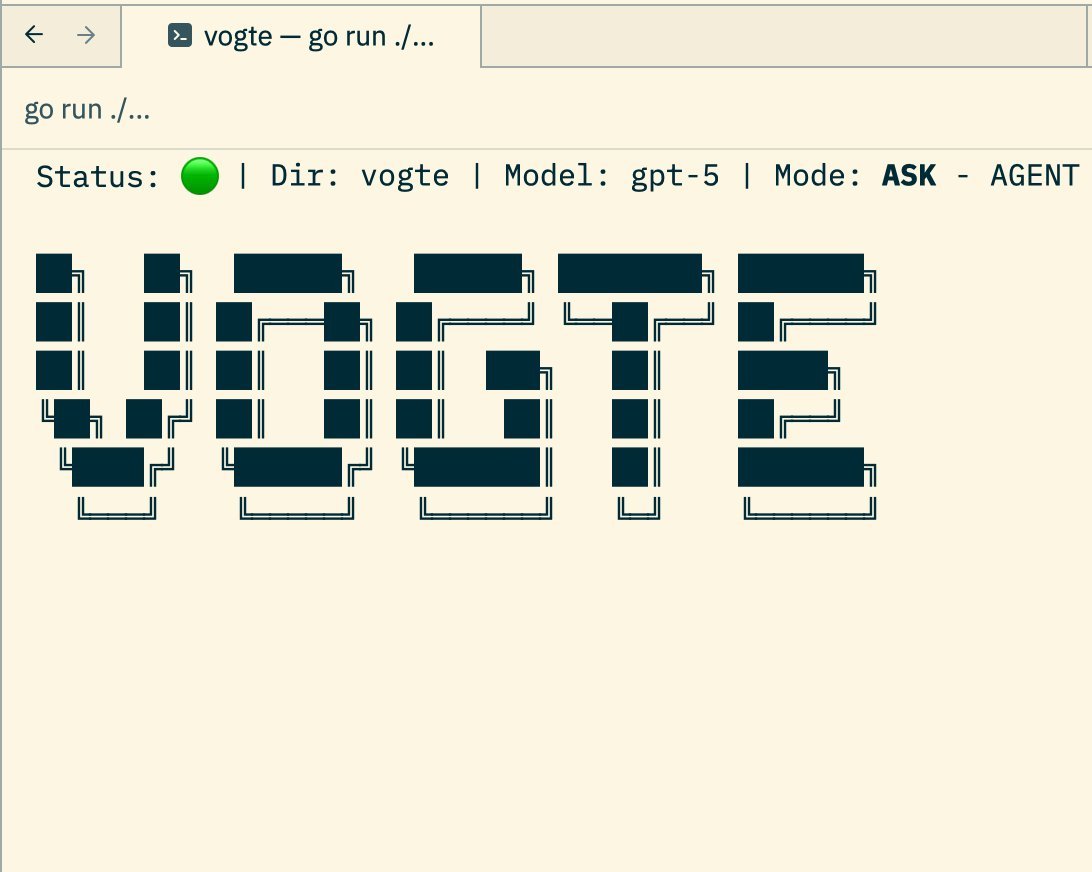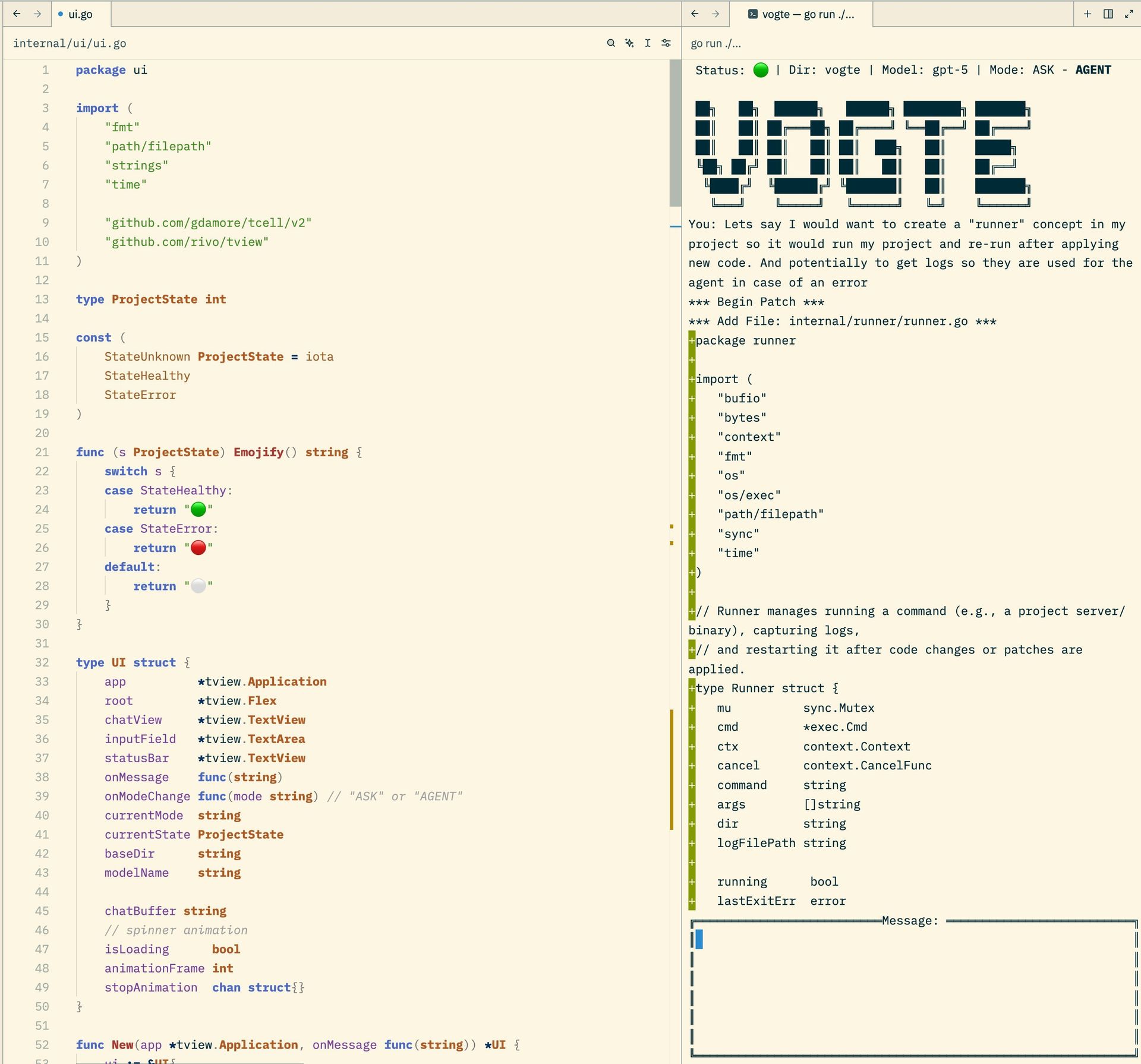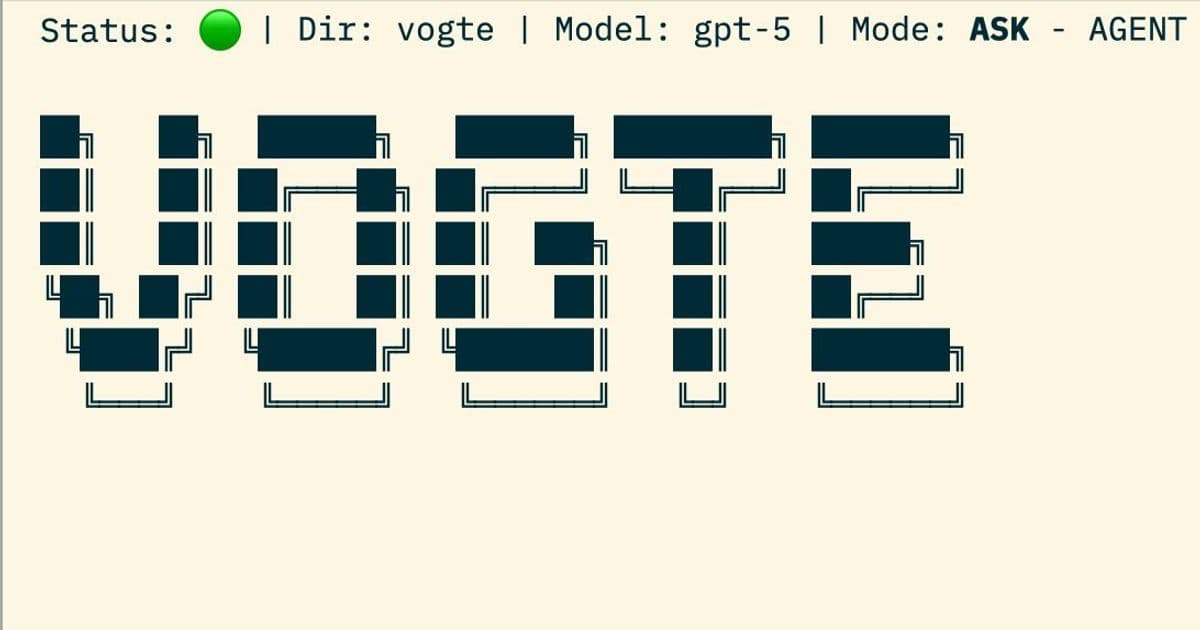Vogte emerges as a specialized AI terminal that leverages abstract syntax trees and large language models to provide deep contextual understanding of Go codebases. This open-source tool enables developers to tackle complex refactoring and maintenance tasks with unprecedented repository awareness while integrating Go's native toolchain for validation. By focusing exclusively on Go, Vogte delivers near-zero configuration workflows with instant sanity checks through go vet and test integration.

In the bustling ecosystem of AI-powered developer tools, a new contender has emerged with a sharp focus on the Go programming language. Vogte—an open-source "agentic terminal"—is pioneering a context-aware approach to codebase maintenance by combining Go's Abstract Syntax Tree (AST) capabilities with large language models. Unlike generic AI coding assistants, Vogte's language-specific design allows it to deeply understand repository structure and relationships, offering a fundamentally different workflow for Go developers.
The Go-Centric Advantage
Vogte's core innovation lies in its specialized processing of Go repositories:
// Example AST parsing in Vogte's workflow
package main
import "go/ast"
func extractContext(files []*ast.File) RepositoryContext {
// Compress critical structures/interfaces/methods
// for LLM context optimization
}
By leveraging Go's built-in tooling, Vogte achieves three critical benefits:
- Precision Context: Extracts and compresses repository structure (structs, interfaces, methods) to provide LLMs with optimal context
- Native Validation: Integrates
go vet, tests, andgoimportsfor instant sanity checks after code generation - Zero Configuration: Automatically detects Go environments requiring only an LLM API key
The Two-Step AI Workflow
Vogte employs a sophisticated two-phase process when handling tasks:
Context Extraction Phase:
- Parses repository AST to identify relevant components
- Asks the LLM which files require full inspection
Execution Phase:
- Provides full file content to the LLM based on phase-1 analysis
- Applies generated patches (currently line-based, AST patching in development)
- Runs validation checks and displays project health status (🟢/🔴)
 Vogte operating alongside Zed editor, demonstrating its terminal-based workflow
Vogte operating alongside Zed editor, demonstrating its terminal-based workflow
Practical Implementation
Installation is straightforward for Go developers:
go install github.com/piqoni/vogte/cmd/vogte@latest
Key usage patterns:
- Agent Mode: Apply changes directly with
vogte -agent - Multi-LLM Support: Works with GPT-4, Claude Sonnet, or any OpenAI-compatible API
- Context Export: Generate repository context bundles for web UI use with
vogte -output context.txt
"Being language-specific allows us to leverage Go's excellent tooling ecosystem while providing LLMs with maximally relevant context. The AST approach fundamentally changes how AI understands code relationships," explains the project's documentation.
Current Limitations and Future Direction
Vogte intentionally omits certain features to maintain focus:
- No persistent chat history (each prompt is independent)
- No automatic retry loops for failed patches
- AST-based patching still experimental
The roadmap indicates plans for deeper Go toolchain integration, including:
- Benchmark impact analysis
- Dependency compatibility checks
- Security vulnerability scanning
The New Frontier of Language-Specific AI
Vogte represents a growing trend of specialized AI tools that abandon the one-size-fits-all approach. By constraining its scope to Go, it achieves tighter toolchain integration and deeper code understanding than general-purpose alternatives. While still early-stage, its AST-powered methodology offers a glimpse into how language-specific AI could transform maintenance of large-scale systems. As the project evolves, it may establish new patterns for repository-aware AI assistance that extend beyond the Go ecosystem.
Source: Vogte GitHub Repository

Comments
Please log in or register to join the discussion